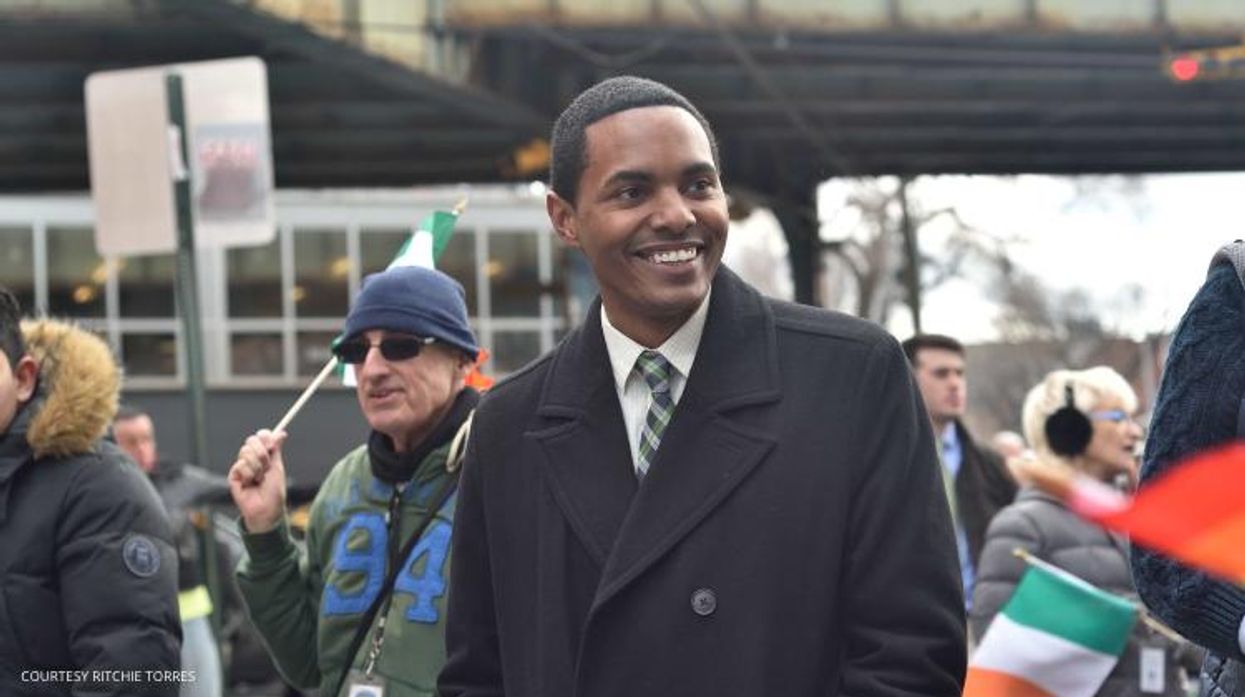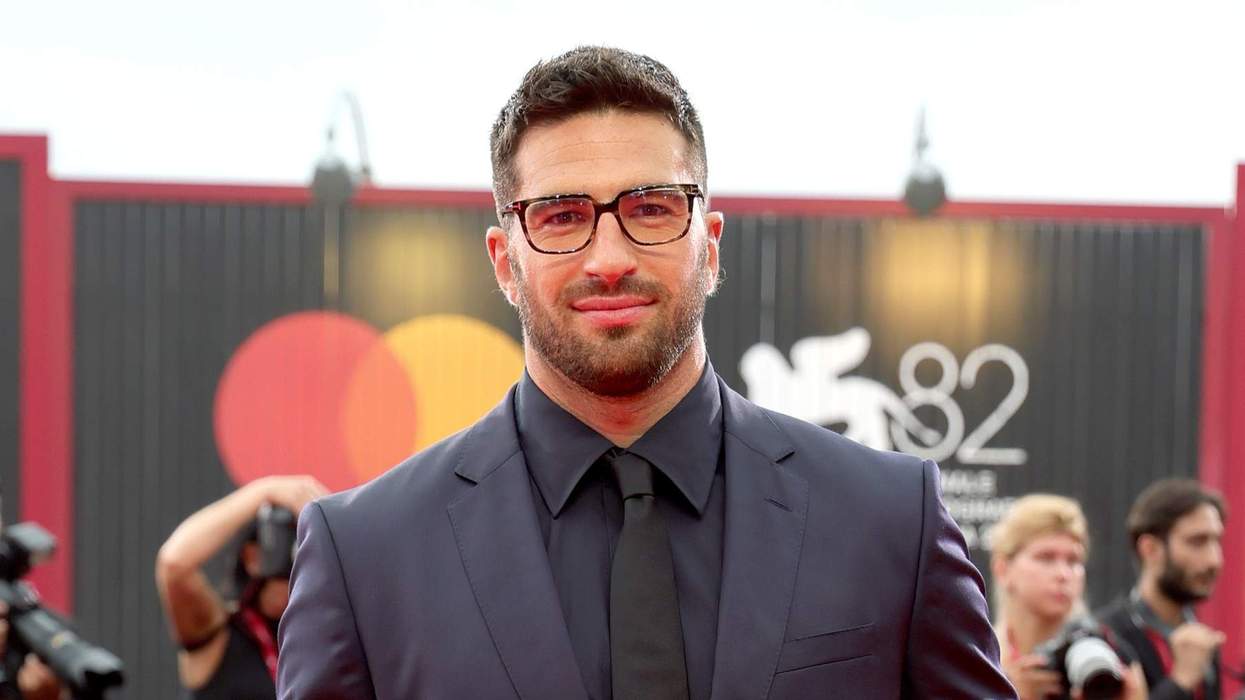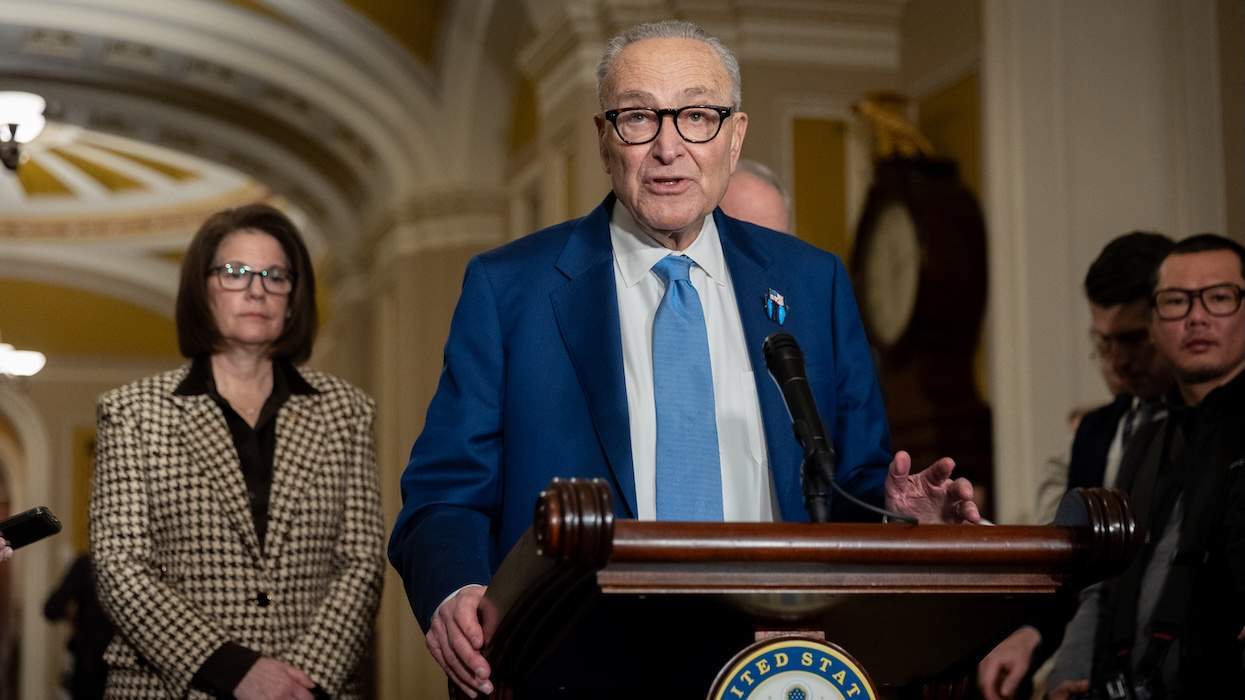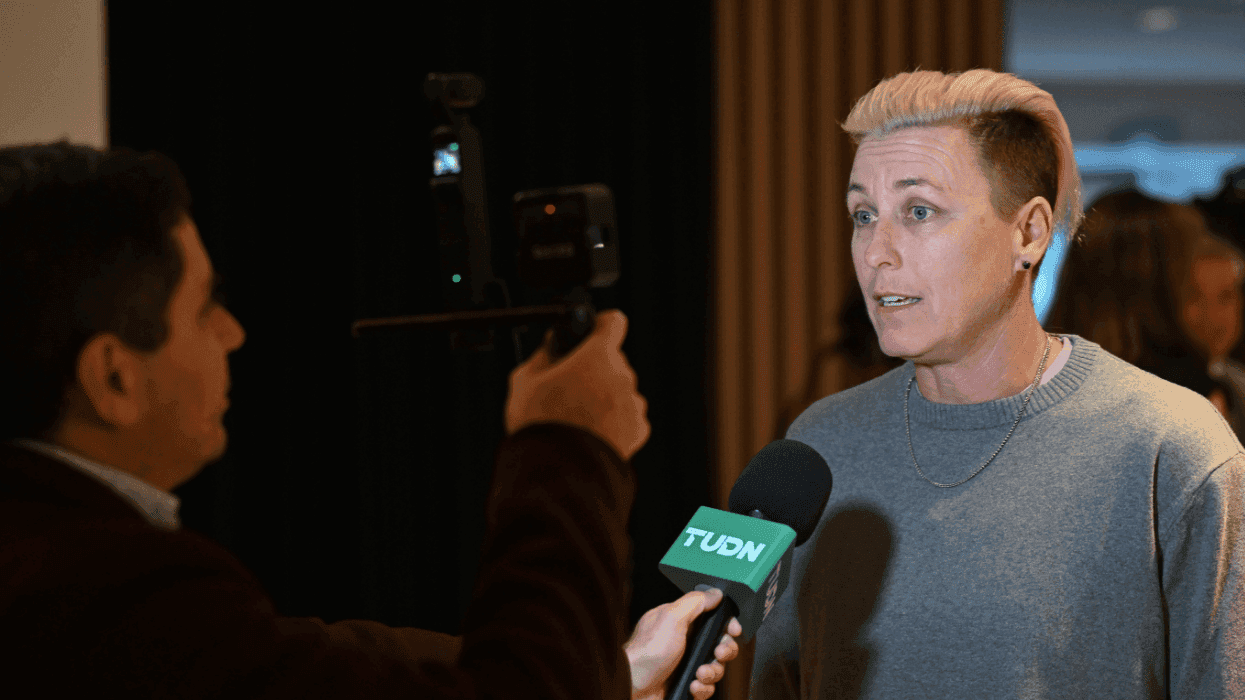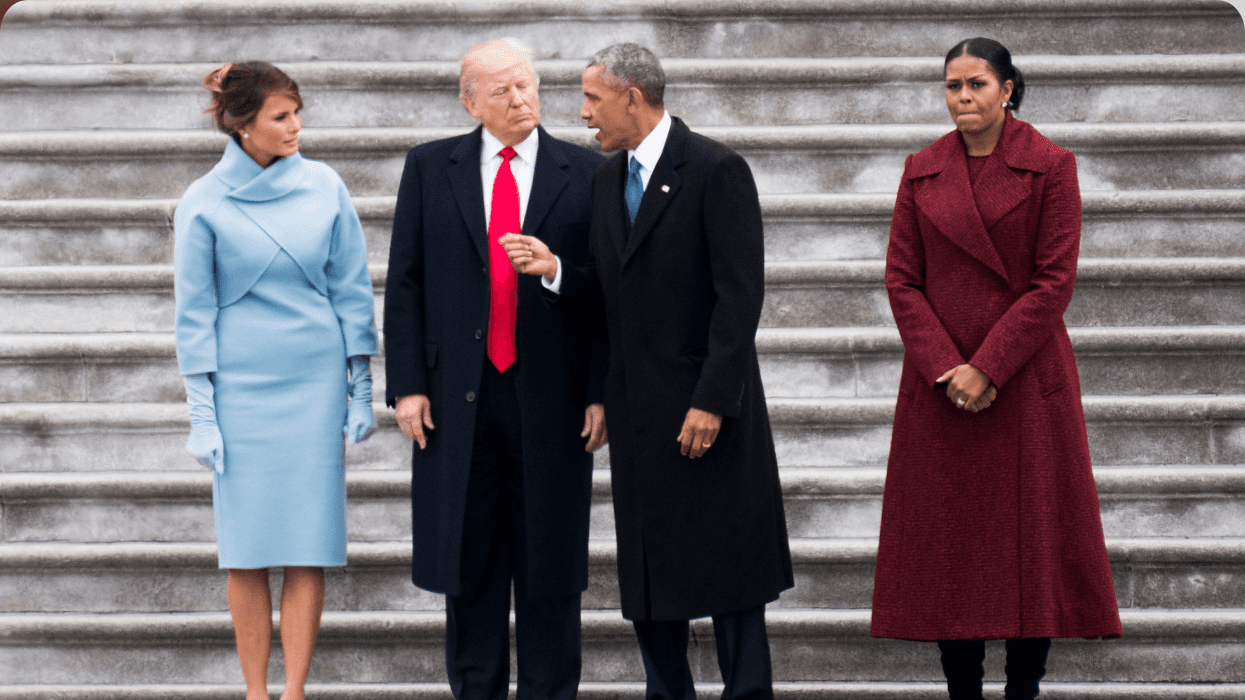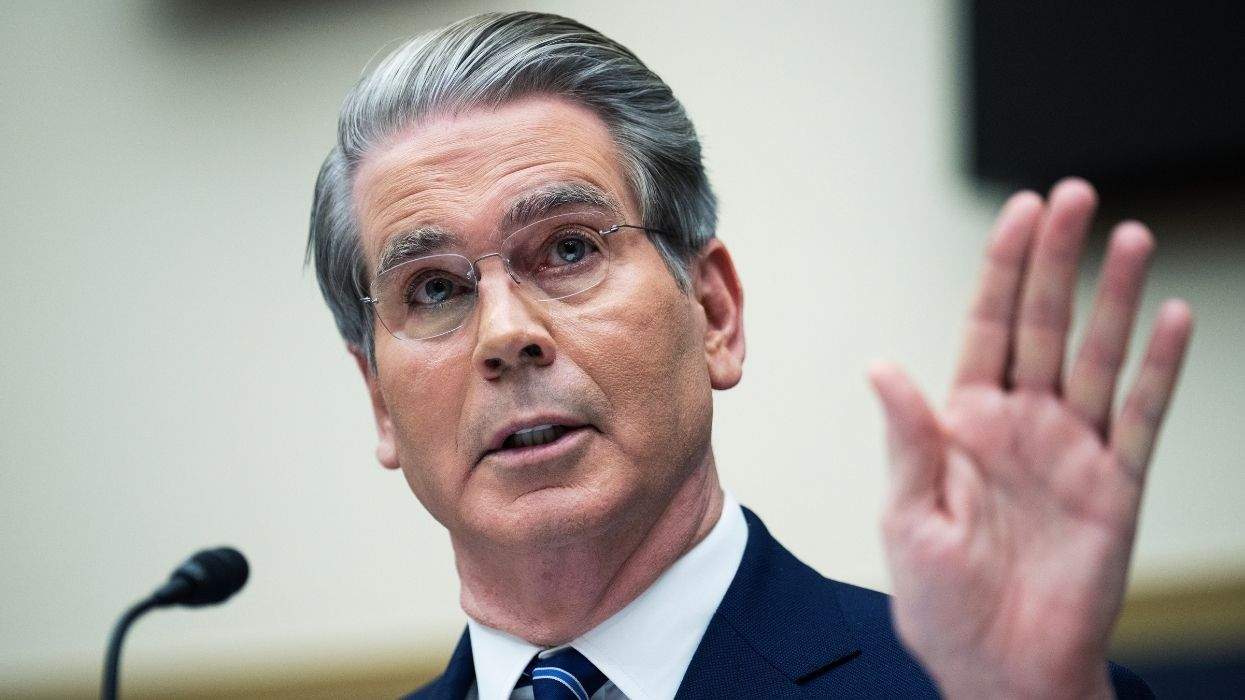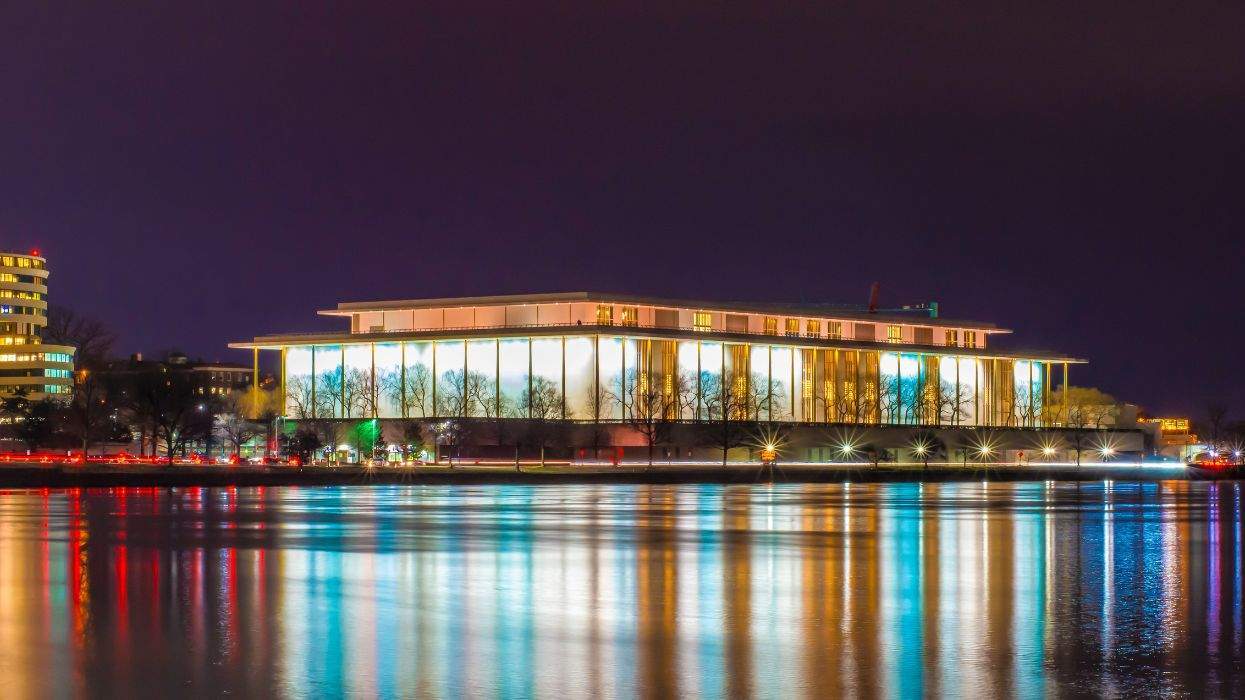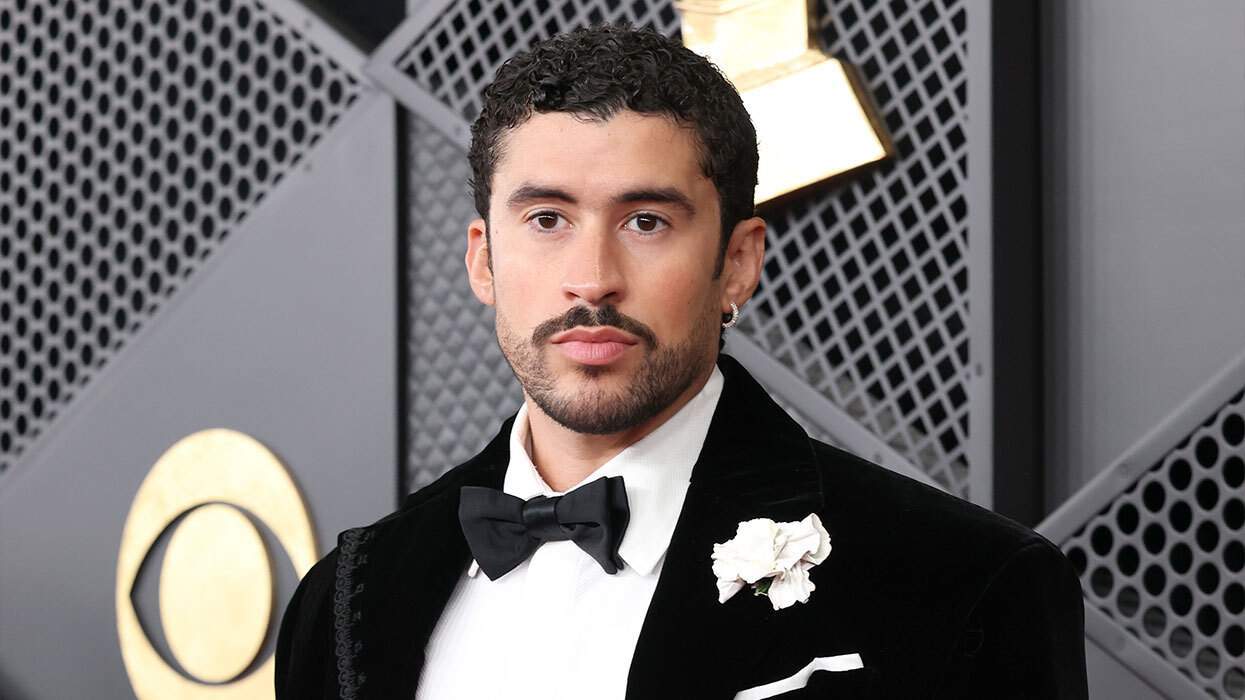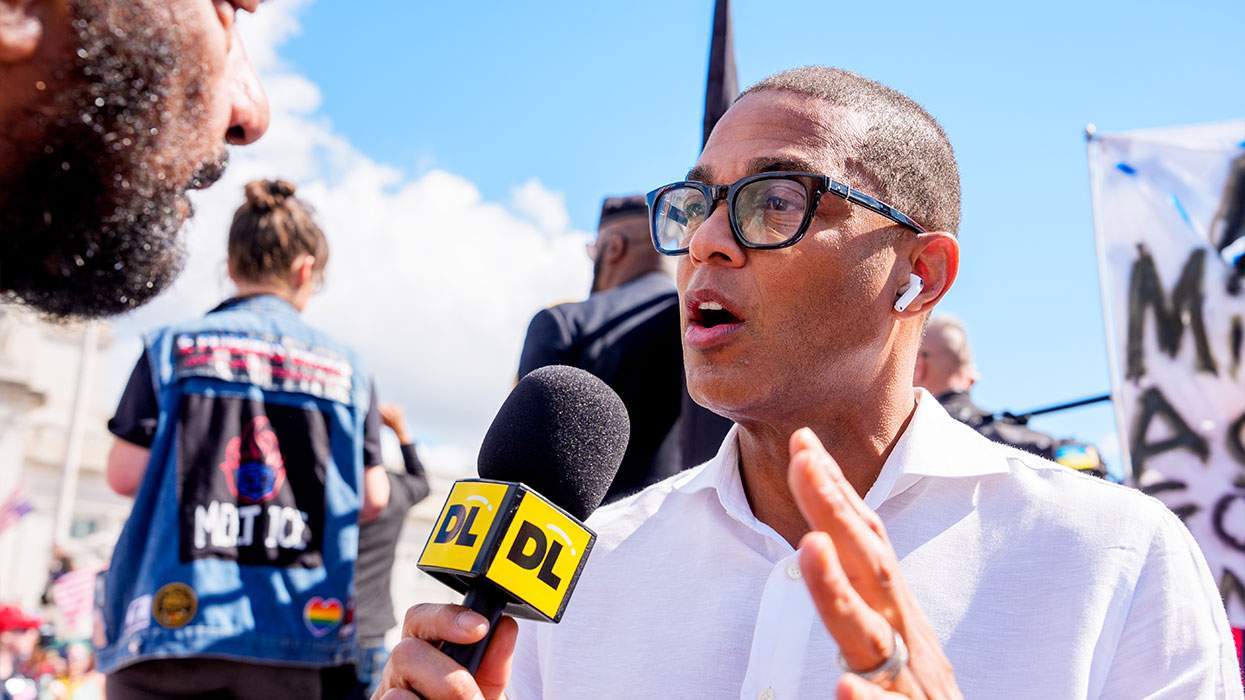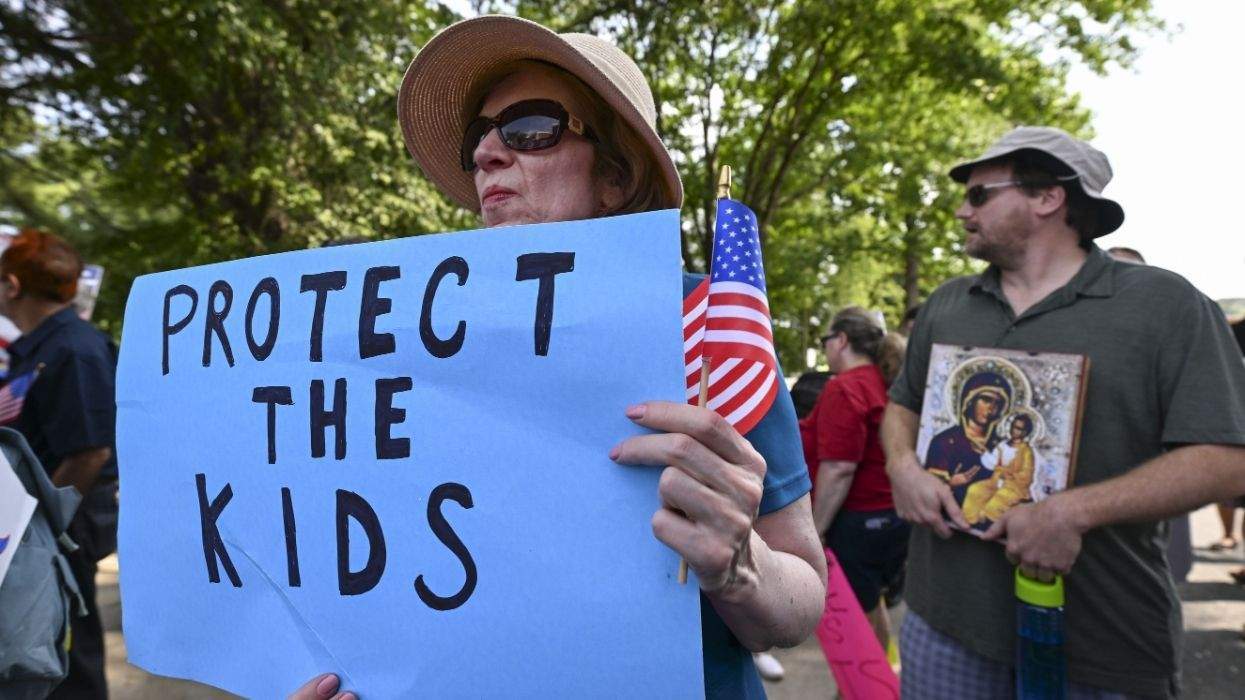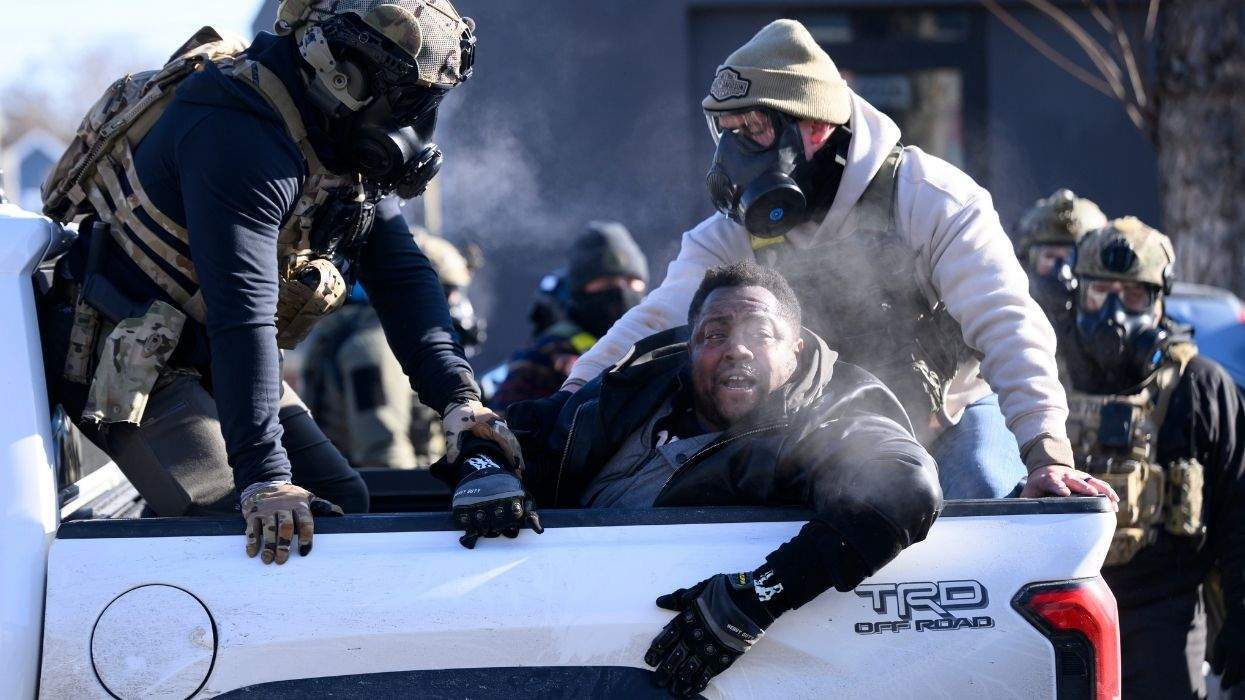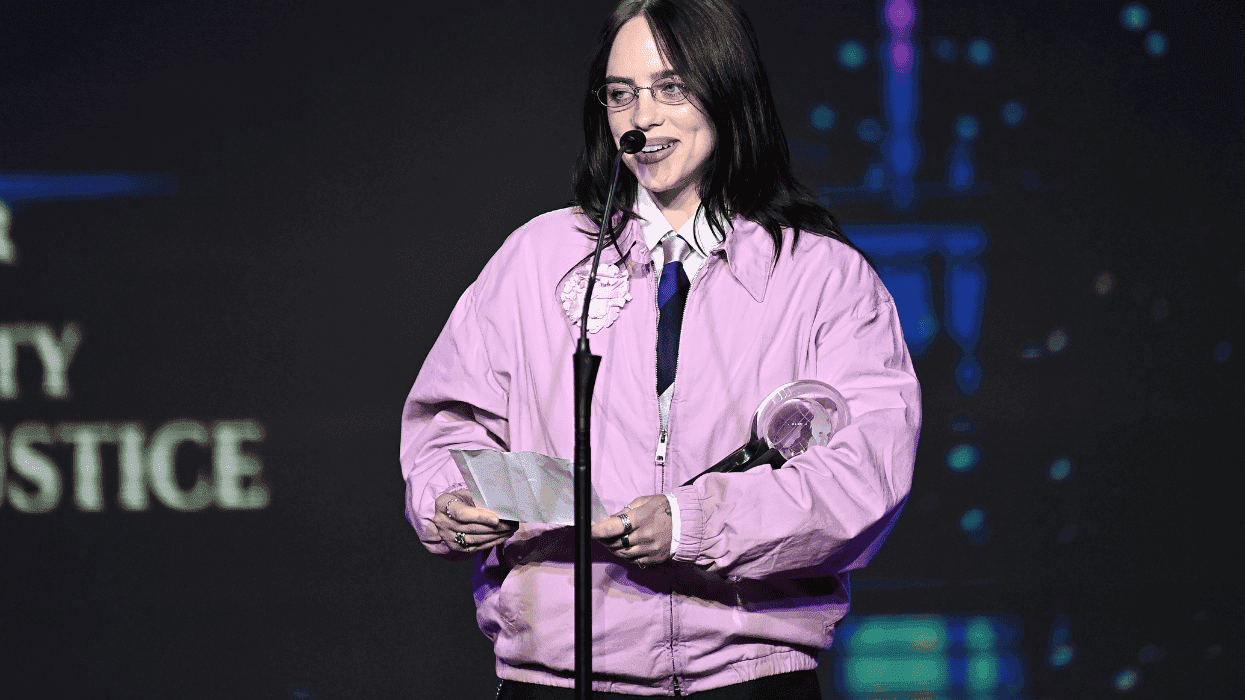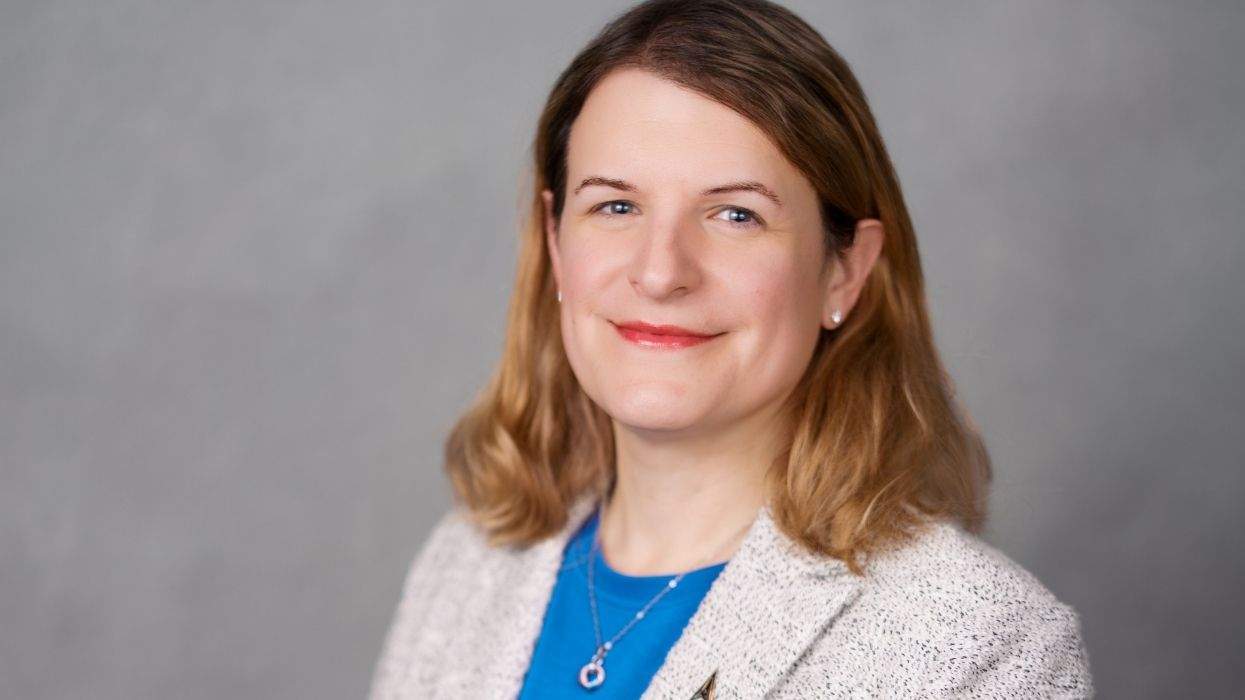Before Ritchie Torres became the first gay Afro-Latinx man elected to Congress in November, where he will represent New York, the Bronx native's grandfather projected that he would leave an impact on those around him.
"My grandfather would tell me as a child, 'Ritchie you are going to be somebody one day,'" Torres explains to Out. At the time, the younger thought he'd be a teacher when he grew up. "He always had more confidence in me than I had in myself." And it turns out he was right.
In high school, the teen discovered Moot Court, a competition that brings students together to test their debate skills by arguing a case before a panel of judges. The school club is ultimately what led the 2020 Out100 honoree down the path of law and activism and made for a high point in his early life. But college brought on a low point.
"I began abusing substances. I even lost my best friend to an overdose," Torres says. "And I found myself struggling with my sexuality. There were moments when I thought of taking my own life." The struggle saw Torres go through severe depression and eventually drop out during his sophomore year.
"At the beginning of my career, I was hesitant to speak openly about my struggles with depression," he explains. "But over time, as I became more secure in my own skin, I was not only willing but I felt obligated to speak openly and honestly about my struggles. I felt as a public figure I could play a role in breaking the stigma that often surrounds us. As an elected official, I have a platform and so why not use it to raise awareness about something as fundamental to all of us as mental health?"
He continues, "Not everyone can connect to each aspect of life, right? Not everyone is LGBTQ+. Not everyone is Latino. Not everyone is Black. Not everyone grew up poor. Not everyone grew up in the Bronx. Not everyone is a Millennial. But all of us have mental health. All of us have had struggles with mental health or know someone in our lives who has struggled with mental health. It's a common experience and I felt it was important for me as a public official to make it crystal clear that I struggle with depression and it's not something of which I'm ashamed. I have no shame in admitting that I take an antidepressant every day. I feel no shame in admitting that I will not be here today if it were not for mental healthcare, if it were not for the stability it gave me in my moment of greatest crisis. I want for my constituents, and for every American, the same access to health care that transformed my life, that set me on a trajectory that ultimately led to the United States Congress."
With his ascent to Congress, Torres is set to fill the seat for New York's 15th Congressional District that was left by Representative Jose Serrano -- the Democrat retired this year after 16 terms in office. Previously, Torres had served as the NYC council member for the 15th district since being elected in 2013, when he'd made history as the youngest ever on the council. He was 25 at the time. Now, at 32, he's continuing to push forward.
Politically, he is a proponent of police reform and has called for accountability and oversight for all police departments -- in line with much of the public sentiment following the Black Lives Matter protests this summer. Earlier this year, he called for the resignation of Ed Mullins, president of the NYPD's Sergeants Benevolent Association after Mullins tweeted that Torres was a "first-class whore." It was taken by many as a homophobic dogwhistle. Mullins later deleted the tweet and insisted his comments weren't about Torres's sexuality.
Torres also sparred with the notriously homophobic politician Ruben Diaz Sr., his opponent in the primary election. In his tumultuous career, Diaz has referred to queer people as "cursed" and voted against legalizing same-sex marriage in 2009 and 2011. He also claimed that the NY City Council is being "controlled by the homosexual community."
"The voters of the South Bronx were presented with a stark choice between Diaz Sr. and myself," Torres explains. "Diaz Sr. represented the past and I represent the future. He represents the politics of fear and I represent the politics of a multiracial multi-ethnic, inclusive democracy. He is the worst homophobe in New York politics and LGBTQ+ public service. In the end, the voters not only chose me but rejected Ruben Diaz Sr. so decisively that he went into retirement, which is exactly where he belongs."
Torres's victory is a part of a larger shift in LGBTQ+ representation in American politics, including politicians that are increasingly intersectonal. But Torres didn't run a campaign based on representation.
"I assembled a team that knew how to run a campaign effectively and that knew how to adapt to environments like [the current pandemic]," he explains. "I knew from day one that voters were gonna choose the candidate who could speak most compellingly to their bread and butter concerns, health and housing, schools and jobs. I ran as a fighter. I said to the voters, 'I'm one of you, and I'm going to fight for you.' And the voters of the South Bronx saw themselves and their own struggles in my story, in my lived experiences. I went on the strength of my personal story and my record in the city council. They wanted a fighter and a pragmatic problem solver, who was born, bred, and battle tested in the Bronx."
One of Torres's highest priorities in his new position is to expand programs like the child tax credit so that we "put more money in the pockets of families struggling during" the pandemic.
"The child tax credit is the most powerful tool we have for ending child poverty in America," he says. "The present structure of the child tax credit is so progressive that it excludes one-third of American families. And in the South Bronx, two-thirds of American families are excluded from the full credit. So if we were to extend the child tax credit to the poorest families, we would cut child poverty by 40 percent in the span of one year. Where you are born and where you live should never be a barrier."
Torres can't help but smile thinking about how far he's come from in his life, but he also knows how far there is to go toward building a better life for all of his constituents.
A version of this piece was originally published in this year's Out100 issue, out on newstands 12/1. The issue has four cover stars: Janelle Monae, Wilson Cruz, Joe Mantello, and Janaya Khan. To get your own copy directly, support queer media and subscribe -- or download yours for Amazon, Kindle, Nook, or Apple News +. The first-ever Out100 Symposium, titled "How Do We Come Back From This" was hosted by Janaya Khan. Watch the first-ever Out100 Virtual Honoree Induction Ceremony on the Out100 Live landing page.


